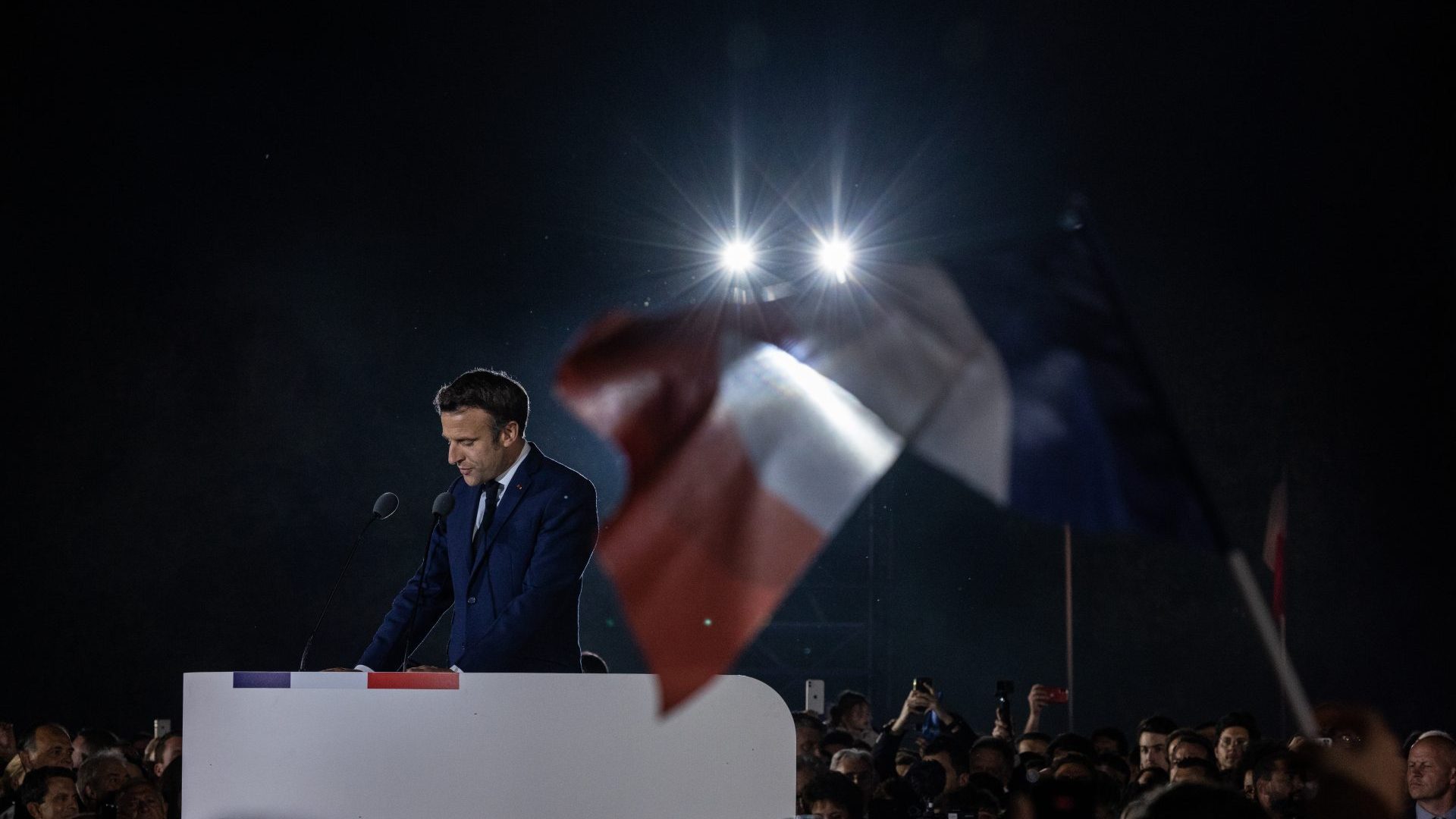For some French newspapers, Sunday’s elections were a slap in the face for Emmanuel Macron. Others described the results – the president’s loss of his absolute majority and historic gains for Marine Le Pen’s far-right and Jean-Luc Mélenchon’s left-wing coalition — as an earthquake. The conclusion of some analysts was summed up on Le Parisien’s front page: Ingouvernable! (Ungovernable!).
But if Macron’s drubbing was not entirely unexpected, the true earthquake was perhaps the shift in fortunes for Le Pen’s National Rally: it saw a nearly tenfold increase in parliamentary seats to 89, up from just eight in 2017.
“We have achieved our three objectives: that of making Emmanuel Macron a minority president, without control of power and that of pursuing the political recomposition essential to democratic renewal,” Le Pen, who was defeated by Macron in April’s presidential run-off, told reporters after she won re-election in her northern Pas-de-Calais stronghold.
Le Pen’s success was seen by analysts as a vindication of her efforts to haul her far-right, anti-immigration party – formerly the National Front under her father Jean-Marie Le Pen– from the extremist fringes back into mainstream politics by deft messaging and a focus on economic hardship.
Although she lost the presidential vote, Le Pen garnered nearly 42% and her decision to focus campaigning on the cost of living crisis and decline in rural communities clearly resonated. Sunday’s legislative results also suggested her defeat in April was more about keeping her out of the Élysée presidential palace, rather than any kind of full-bodied general endorsement of Macron’s own policies or personality.
Finance Minister Bruno Le Maire summed up the new state of affairs, telling France 2 television: “We are facing a democratic shock because of a very strong breakthrough by the Rassemblement National (National Rally).”
The other big winner on Sunday was eurosceptic Mélenchon, whose left-wing coalition, known as Nupes (New Ecological and Social Popular Union), became the largest opposition group. The coalition includes Mélenchon’s hard-left France Unbowed, the Communists and the Greens, but some analysts predicted it might be hard to hold the group together now, especially since Mélenchon himself does not have a seat. But the firebrand leader seemed to be harbouring no such doubts.
“We have succeeded in our political objective … to overthrow [the president] who so arrogantly twists the country’s arm, who has been elected for who knows what,” Mélenchon said on Sunday.
It’s a devastating blow for Macron, who was known as Jupiter because of his style of governing from the top down, and who has sought to place himself firmly on Europe’s centre stage during the war in Ukraine and discussions about the future of the European Union.
On Monday, almost all the newspaper front pages showed him looking subdued and humbled. It’s not the 44-year-old’s usual demeanour, and some analysts say that is exactly why so many voters ditched the party of a man they see as arrogant and divorced from ordinary people.
Macron’s Ensemble alliance, which lost 100 seats to fall to 245, short of the absolute majority of 289 in the 577-seat assembly, will now need to seek allies – either in a coalition or on a bill-by-bill basis if he decides to pursue a minority government – to push through his political agenda, including pension reform, raising the retirement age to 65, action on climate change and efforts to deepen European integration. He also lost some key members of his team: health minister Brigitte Bourguignon and green transition minister Amélie de Montchalin both lost their seats as did the president of the National Assembly, Richard Ferrand.
Le Figaro’s editorial director, Alexis Brézet, said the vote was an “anti-Macron referendum”, and a “cruel lesson for the head of state”.
For Patrick Jankielewicz, the editor of La Voix du Nord, Macron will need to uncover characteristics he had previously seemed to lack. He will need to really listen to the country, be prepared to negotiate, stop creating commissions to bury problems and learn the culture of compromise, Jankielewicz wrote.
Macron’s new prime minister, Élisabeth Borne, acknowledged the latter at a speech at her Hôtel Matignon residence on Sunday. Appointed only a month ago, she is now facing calls for her resignation because of the centrist bloc’s losses.
“This situation represents a risk for our country, given the risks we’re facing nationally and internationally,” she said. “We will work as of tomorrow to build a working majority.”
One possible candidate for a pact would be the conservative Les Républicains party, which came fourth. Chairman Christian Jacob was quoted by Reuters as saying the party would remain in opposition but be “constructive”, which could mean making deals on a case-by-case basis.
Five years ago, Macron rejuvenated the National Assembly by bringing in a new cohort of MPs from civil society. On Monday, the new faces belonged to his opponents, people like Rachel Keke, a hotel chambermaid who rallied her colleagues to fight for better pay and conditions and who won a seat for Nupes.
“I am the voice of the voiceless. I am a hotel chambermaid, a cleaner, a guard, a carer, a house helper; I am all these invisible professions. And in the National Assembly, these professions will be seen,” Keke said.
Some concluded that Macron might decide to call a snap parliamentary election some time in the next year to break any parliamentary deadlock.
Writing in Libération, editor Paul Quinio said the next five years were a “terra incognita” that would force Macron to build consensus, discuss and negotiate. “It would be an understatement to say that the president of the Republic has not excelled in this over the past five years… A fault that was punished also during this vote,” he wrote.










